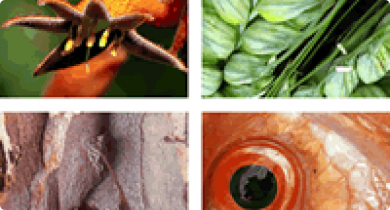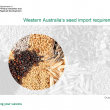Biosecurity
Biosecurity is fundamental for safeguarding our valuable agricultural resources against the threat and impacts of pests, weeds and diseases (pests).
Biosecurity is the management of the risk of animal and plant pests and diseases entering, emerging, establishing or spreading in Western Australia, to protect our economy, environment and the community.
To protect Western Australian agricultural industries from pests the Department of Agriculture and Food, Western Australia:
- Works with stakeholders to identify and manage biosecurity risks.
- Develops legislation.
- Establishes import controls.
- Conducts inspections.
- Provides quarantine services as required.
To find out more about what we do to protect agricultural production and export opportunities within the State please search our website.
Articles
Filter by search
Filter by topic
- (-) Remove Quarantine filter Quarantine
- Importing to Western Australia (5) Apply Importing to Western Australia filter
- (-) Remove Importing plant and plant products filter Importing plant and plant products
- Importing miscellaneous (3) Apply Importing miscellaneous filter
- Quality assurance schemes (2) Apply Quality assurance schemes filter
- Intrastate movement (2) Apply Intrastate movement filter
- Importing animals (2) Apply Importing animals filter
- Exporting from Western Australia (2) Apply Exporting from Western Australia filter
- Horticulture (1) Apply Horticulture filter
- Invasive species (1) Apply Invasive species filter
- Pests, weeds & diseases (1) Apply Pests, weeds & diseases filter
- Fruit (1) Apply Fruit filter
- Plant biosecurity (1) Apply Plant biosecurity filter
- Crops (1) Apply Crops filter
- Bananas (1) Apply Bananas filter
- Diseases (1) Apply Diseases filter
- Exporting animals (1) Apply Exporting animals filter
- Exporting miscellaneous (1) Apply Exporting miscellaneous filter
- Exporting plant and plant products (1) Apply Exporting plant and plant products filter





